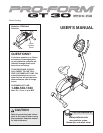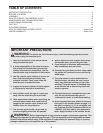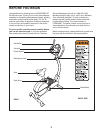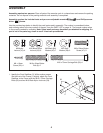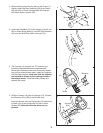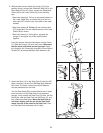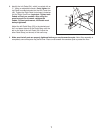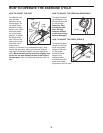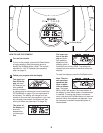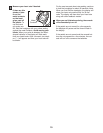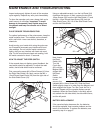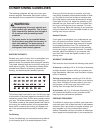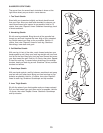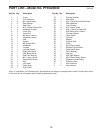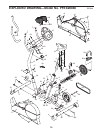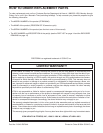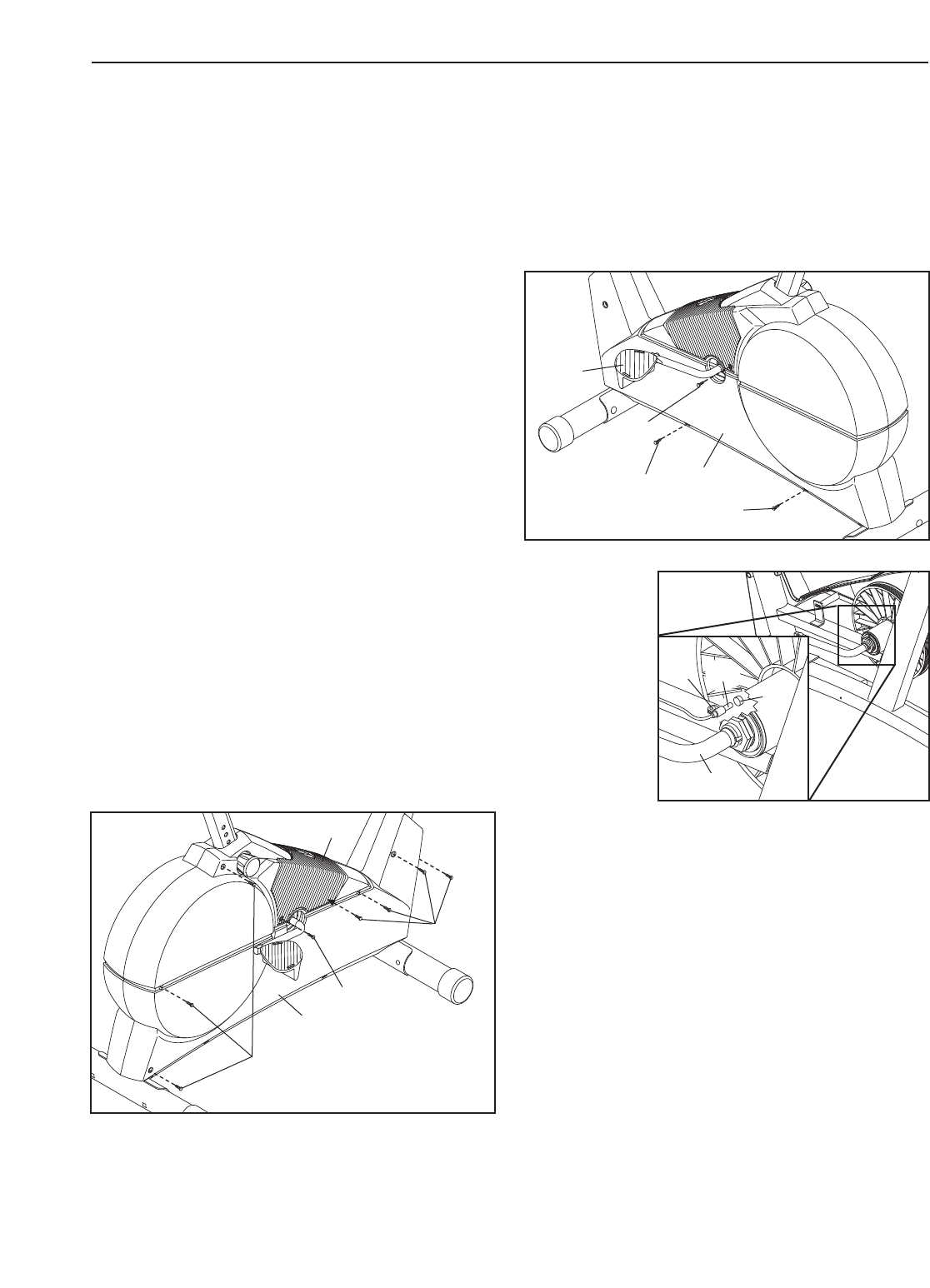
Inspect and properly tighten all parts of the exercise
cycle regularly. Replace any worn parts immediately.
To clean the exercise cycle, use a damp cloth and a
small amount of mild soap. Important: To avoid
damage to the console, keep liquids away from
the console and keep the console out of direct
sunlight.
PULSE SENSOR TROUBLESHOOTING
For optimal performance of the pulse sensor, keep the
metal contacts clean. The contacts can be cleaned
with a soft cloth—never use alcohol, abrasives, or
chemicals.
Avoid moving your hands while using the pulse sen-
sor. Excessive movement may interfere with heart
rate readings. Do not hold the metal contacts too
tightly; doing so may interfere with heart rate read-
ings. For the most accurate heart rate reading, hold
the metal contacts for about 15 seconds.
HOW TO ADJUST THE REED SWITCH
If the console does not display correct feedback, the
reed switch should be adjusted. To adjust the reed
switch, the left side shield must be removed.
First, remove the seven M4 x 25mm Screws (41) from
the Right Side Shield (18). Next, remove the M4 x
12mm Round Head Screw (29) from the right side of
the Side Shield Cover (19).
Using an adjustable wrench, turn the Left Pedal (24)
clockwise and remove it. Next, remove the two M4 x
16mm Screws (32) from the Left Side Shield (17) and
the M4 x 12mm Round Head Screw (29) from the
Side Shield Cover (19). Lift off the Side Shield Cover
and the Left Side Shield.
Next, locate
the Reed
Switch (43).
Turn the
Crank Arm
(40) until the
Magnet (38) is
aligned with
the Reed
Switch.
Loosen, but
do not
remove, the
indicated M4 x 16mm Screw (32). Slide the Reed
Switch slightly closer to or away from the Magnet, and
then retighten the Screw. Turn the Crank Arm for a
moment. Repeat until the console displays correct
feedback. When the Reed Switch is correctly adjust-
ed, reattach the left side shield, the side shield cover
,
and the left pedal.
BA
TTER
Y REPLACEMENT
If the console display becomes dim, the batteries
should be replaced; most console problems are the
result of low batteries. To replace the batteries, see
assembly step 4 on page 5.
11
MAINTENANCE AND TROUBLESHOOTING
18
38
32
17
29
41
29
19
41
32
32
24
40
43



